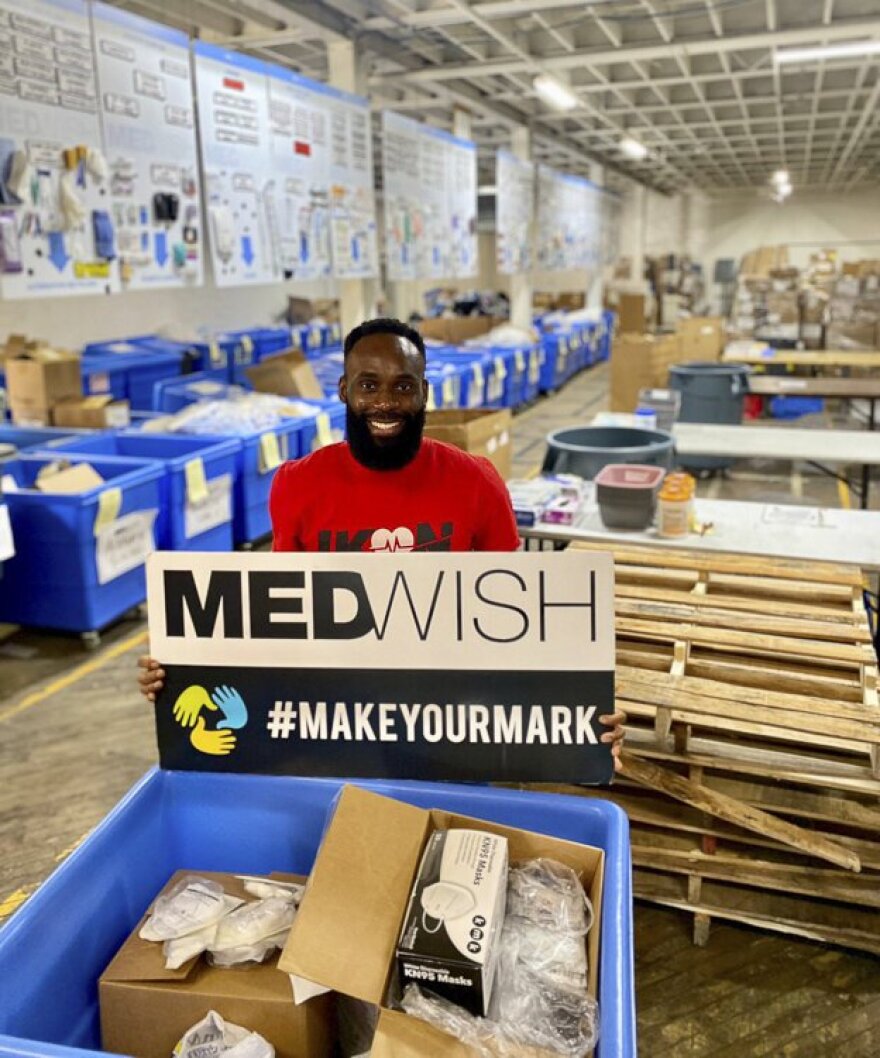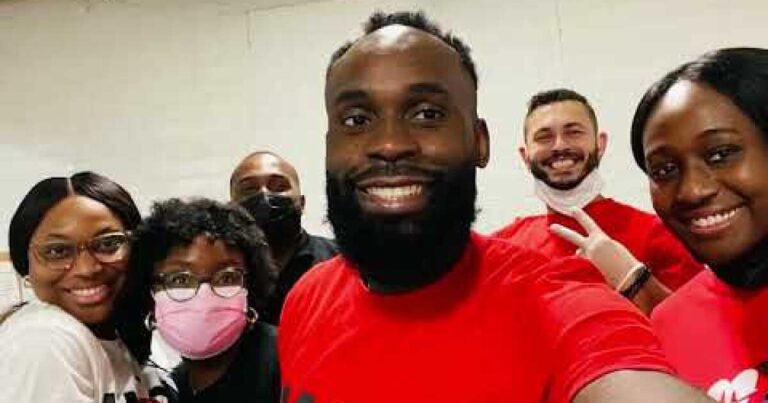This is the second part of a four-part series studying disparities in the health care system for members of the refugee community in Cleveland. Read the first part here.
Ikenna Ogwuegbu is on a mission — not only to heal sick patients but to heal health disparities in Cleveland.
The Nigerian-born pharmacist completed his studies in pharmaceutical sciences at Cleveland State University in 2019 and wanted to provide quality healthcare to underserved communities in Cleveland, so he founded IKON Health Foundationwhich provides preventive health services, benefit registration, dental care and education about the health care system through its clinics.
Ogwuegbu said he hopes to address one of the underlying barriers for the refugee community: the lack of culturally competent health care providers drawn from the refugee communities themselves.
Building trust
Since its official establishment in 2021 as a registered non-profit organization, IKON has hosted four community health fairs in partnership with Salaam Clinic in Midtown and local refugee leaders. To date, Ogwuegbu estimated that the clinics have helped 160 patients receive basic services.
Much of his success has depended on Ogwuegbu's ability to build trust with immigrant communities, where patients rarely encounter health workers who look like them.
“When you look at the doctors in America, less than 5 percent of them are black,” he said. “Change it to a pharmacy — that number hovers around 8%. With the medical history in this country centered on African-Americans and Blacks in general, the connection and trust is not there between us and the health care providers.”
This trust is particularly important for refugee communities. Studies have found that while African immigrants have high rates of mental health and chronic illness, they are often reluctant to access the American health care system—primarily due to the absence of providers who understand their cultural backgrounds.
Ogwuegbu said he hopes his and other immigrant leaders' presence at community clinics will help build that trust.
“Part of the reason I started this foundation was to see how my presence alone could impact patients,” he explained. “On one of my rotations in downtown Cleveland, a patient came in and said, 'I'm praying for you. I'm so glad you're here. We need more people like you.”
Ogwuegbu said he hopes the IKON Health Foundation will not only help provide high quality healthcare but will inspire other black and brown youths to enter the healthcare sector.
Read the story of how this three-part series on barriers to health in Northeast Ohio's refugee communities came about here:
This is a four-part story series on barriers to health access in Northeast Ohio's refugee communities created as part of a Connecting the Dots between Race and Health project.
Barriers to access
Ogwuegbu attributes the underrepresentation of immigrants and refugees in health care fields to both structural and personal challenges. He said many refugees must juggle long-term career goals with the need to support their families.
“So many of us are taking care of younger siblings or having to pay for where we live at a very young age,” she explained. “It's very hard…when you're trying to take care of others and you're trying to take care of yourself.”

Ogwuegbu said there is a lack of guidance – both from personal networks and medical institutions. Many refugees are first-generation college students and have no one to guide them through the process, he said.
“With no hope or anyone to look up to, it's very difficult,” Ogwuegbu said. “After a while, you might start thinking, 'There's a reason no one in my family has followed this path.'
At the same time, refugees and immigrants are often unaware of the resources available to them at their colleges and universities — from how to apply for scholarships to where to find free books, Ogwuegbu said.
To solve these challenges, Ogwuegbu called on both institutions and members of the community to focus on guiding the youth through their entry into their careers in the medical field.
He said one thing foundations and hospitals can do is invest in training programs that target high school students in black and brown communities. Ogwuegbu mentions programs such as; MetroHealth Systemhis collaboration with Lincoln-West School of Science and Health, which allows high school students to explore health care opportunities on the MetroHealth campus. Students can then network with doctors and nurses.
However, Ogwuegbu also called on minorities in the health professions to look back to the communities they come from.
“We cannot put all the responsibility and burden on the institutions,” he said. “We have to do things ourselves … so we have to reach back and pull those who want it along [go into the field].”
Read the first part of our series on refugee health inequalities here:
Jonas Mbonga, originally from the Democratic Republic of Congo, fled to escape an increasingly violent political situation. His travels brought him to the United States where he was detained while applying for asylum. The experience affected his health, he said.
This project is part of Connecting the Dots between Race and Health, an Ideastream Public Media project that explores how racism contributes to poor health outcomes in the Cleveland area and reveals what local institutions are doing to break down structural barriers to good health . The project is funded by Dr. Donald J. Goodman and Ruth Weber Goodman Philanthropic Fund of The Cleveland Foundation.



